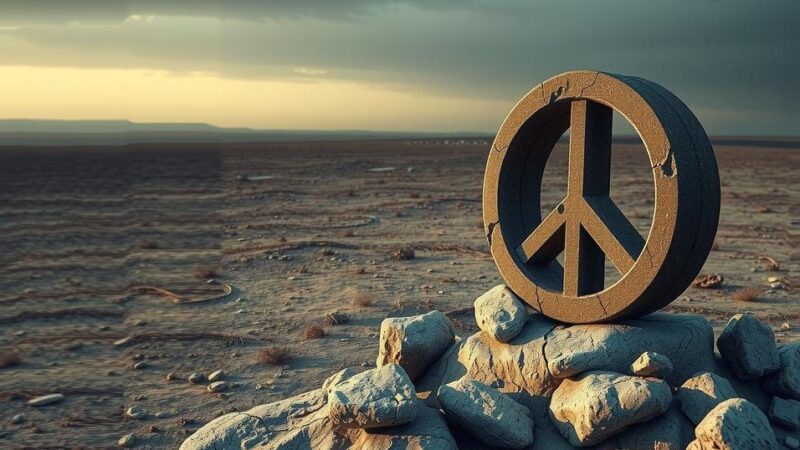Malawi President Lazarus Chakwera has ordered a withdrawal of troops from the DRC peacekeeping mission following significant casualties involving peacekeepers. This decision is influenced by a declared ceasefire and regional diplomatic resolutions seeking to foster peace negotiations. The M23 rebel group continues to engage in hostilities, complicating the security landscape, while neighboring nations face similar decisions regarding their military presence in the DRC.
President Lazarus Chakwera of Malawi has initiated preparations for the withdrawal of Malawian troops from their peacekeeping mission in the eastern Democratic Republic of the Congo (DRC). This mission is part of the Southern African regional bloc’s military operation, aimed at combatting armed militant groups. Recent conflicts, particularly the assault on the city of Goma by M23 rebels, resulted in the deaths of 20 peacekeepers, intensifying calls for withdrawal from Malawian leadership.
In a televised statement, President Chakwera emphasized that the troop withdrawal aligns with a recently declared ceasefire, despite ongoing clashes. He stated that this move would facilitate negotiations aimed at achieving a sustainable peace in the region. Malawi’s Information Minister, Moses Kunkuyu, indicated that the withdrawal reflects a genuine commitment to peace-building, pursuant to a resolution by southern African leaders advocating for a ceasefire.
As of late, the M23 rebel group, which has been a significant player in the conflict, declared a unilateral ceasefire for humanitarian reasons while continuing territorial advances in South Kivu province. Despite pressures faced by Malawi, President Cyril Ramaphosa of South Africa has opted to maintain his troops’ presence in the DRC, contradicting Malawi’s decision. The ongoing instability has led to citizen mobilizations in defense of Bukavu, a key city threatened by M23 advancements.
The UN reports that extensive violence has resulted in nearly 3,000 fatalities due to the M23’s campaign, exacerbating security and health fears, especially regarding potential disease outbreaks. The dynamics in the DRC continue to evolve rapidly, impacting regional stability and necessitating international attention and intervention to support peace initiatives in the area.
The Democratic Republic of the Congo has been embroiled in conflict for decades, fueled by various armed groups competing for control over resources and territory. The M23 militia, in particular, has been notorious for violent uprisings. The Southern African Development Community (SADC) has been involved in peacekeeping efforts, deploying troops from member nations to mitigate violence and support stability. The current situation is marked by increasing casualties among peacekeepers, prompting discussions about the effectiveness of military intervention. In recent months, the security landscape has rapidly deteriorated due to the resurgence of rebel factions, leading to widespread violence, casualties, and humanitarian crises. The underscore of Malawi’s withdrawal decision was reportedly influenced by a regional summit advocating for diplomatic resolutions amid ongoing hostilities.
In summary, President Lazarus Chakwera’s directive to withdraw Malawian troops from the DRC peacekeeping mission underscores a significant response to recent violence and casualties among peacekeepers. While aiming to foster conditions for negotiation and peace, this decision reflects broader regional pressures and the complexities of international military involvement in areas of conflict. The situation in eastern DRC remains precarious, requiring vigilant international and diplomatic efforts to navigate toward lasting peace and stability.
Original Source: www.bbc.com






